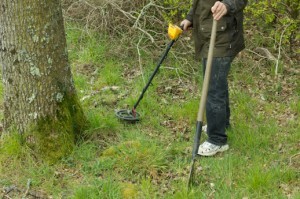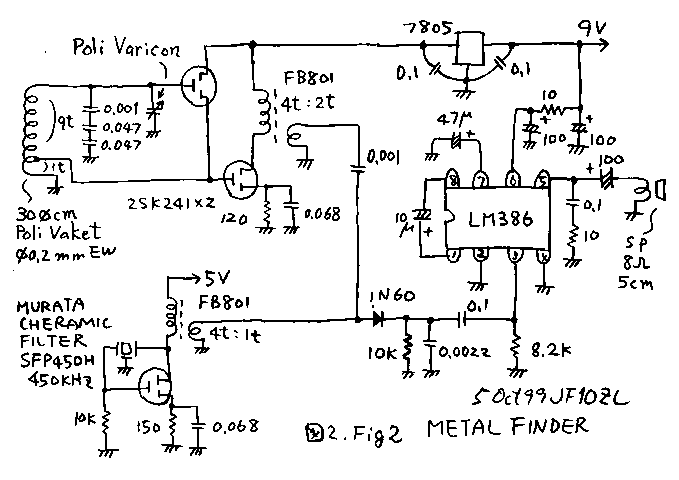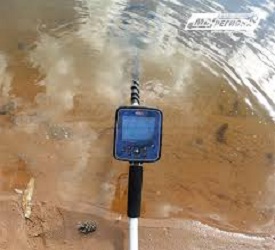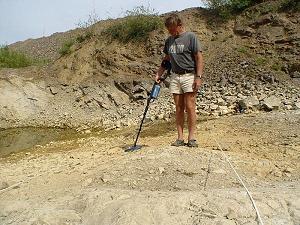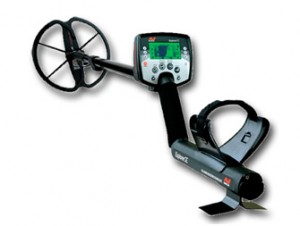Tips on using metal detectors In the category treasure hunting more articles and learn more information about Tips on using metal detectors Reviews Price Specifications Features Image manuals videos Accessories All this in metal detectors for gold.
Tips on using metal detectors
Tips to good use
Batteries:
1-you should not save on batteries, always use good quality alkaline batteries, replace them before they are completely exhausted, using lower voltage decreases the performance of metal; You can then reuse them for other tools that require lower absorption as remote controls, alarms, etc.
2-always with you a complete set of new batteries, sometimes the low battery alarm you may take aback, at other times the feeling of having little charges batteries could nervous when searching
3 – Get a tester … in shopping malls in this way you can always test the voltage of the battery pack.
4-rechargeable batteries have a voltage lower than traditional batteries to
Lose, usually the voltage is less than 1.2 volts. Do not damage the unit, but it inevitably decreases performance. For example, a metal that uses 8 x 1.5 = 12 volt batteries, but using rechargeable batteries you have 1.2 x 8 = 10 volt about … which means after 3-4 hours of research you will have flat batteries or low voltage.
5-changing the batteries you need to pay attention to the polarity should be placed.
6 – upon changing the metal detector must be open, be careful to find yourself in a clean, dry place, is the most delicate moment in that dust, Earth and water can enter more easily
Ignition:
It is desirable that the research is always connected. According to the brands by holding the plate disconnected the metal could be damaged for some sort of abnormal signal boosters. the fact is that as all the electronic instruments that detect when power set-up works better than what is linked below.
Discrimination:
Discriminate means to make a choice if we decide to choose what we do not want to detect you should know:
1 – that you are losing the signals!
2 – that we are well assured of the level of the signal corresponding to the category of objects that we do not want to detect.
3 – that the range of signals that correspond to the objects that discriminate belong only to those objects.
4 – that if we use optimal discrimination will have a more powerful metal detector!
This is because of the above ….. discriminate iron is, if you do not want to dig, always a good habit but sometimes small and deep objects may be exchanged for similar signals to iron and thus discriminated against; If you want to remove the foils you need to discriminate even more but at this point, the risk of losing small coins exchanged by the processor of the detector to foil papers grows even more! Similarly if you discriminate even more the possibility of losing good signals growing! A particular analysis requires 4 point …. If in fact the metal discrimination of these signals will be scanned so hasty (to understand) and then discarded. And the metal will be more ready to analyze the next signal. If the metal do not discriminate would lose time to analyze the signal bad and wouldn’t be ready for the next signal. IN THESE CASES THE EXPERIENCE AND KNOWLEDGE OF SEARCH TERRAIN MAKE THE DIFFERENCE!
the rite is to keep the lowest possible discrimination, of course depending on the presence of metallic waste.
Keywords:
the most common errors are
1) incorrect position of the plate if the plate is held close to the ground
A) there is a loss of depth because Each cm left between the pot and the soil is a cm deep lost!
B) you have an increase in false signals because the metal (which doesn’t have eyes!) believes that analyze the soil and instead are looking at …. Air! And especially if you use the self-balancing instrument will be in constant confusion
2) Brushed the wrong speed. Sometimes brushed speed is too fast for our frenzy of trying other is too slow because of other obstacles still is too little. This prevents the metal opera “moton” detect the signals or to recognize the nature of confusing them with another signal.
3) too much frenzy of digging as soon as you hear a sound. the signal must be assessed, in particular, sound intensity and to be assured of goodness must be repeated identical to each pass (which must be made in order to overcome the target and constant speed). Also what not just proper location with the pinpoint will save us a lot of trouble in digging.
Tips on using metal detectors
4) overlap the passes of 1/3 of the surface of the plate. (.If the place turns out to be interesting and fruitful is a good idea to overlap the passes of at least 50% and possibly review proceeding in direction perpendicular to the previous one). Abandon those that signals are repeated in a second pass. Keep brushed speed between 50 and 100 cm. per second. Proceed with regular step, slow and steady.
Centering: detection
Sometimes it can happen that it is easier to achieve a deep object instead of one, because the deep object has a weaker signal and is detectable only in the middle of matching plate while the surface object is detected by the entire surface of the plate. In case of difficulty in centering lift head and shoulders of the plate, to detect only the center of the signal and not the entire area affected by the halo effect … … another system is to try to keep the knife … … another is still proceeding resetting the pinpoint until the affected area is not small!
There was a clear signal before you dig, now disappeared:
1) the object is dropped to the bottom of the pit, now too far away to be detected. Clean the bottom of the hole. This happens especially with very small objects …
2) the object is located in the land of excavation, but it is positioned for cutting and produces a weak signal.
3) in the heat of the excavation have thrown the remote object.
4) is attached to the Kiran … don’t laugh there will happen!
5) On steep terrain be aware that typically the object is about 10 cm. upstream of the apparent Center.
THE PLATE
The basics are
1) concentric plate has a conical detection under the dish, an elliptical plate has a blade a semi-elliptic direction of major axis of the plate
concentric plate 2) tends to go more in depth but covers on balance less soil and requires greater overlap of brush.
3) a great falls deeper but much land thereby stretching is more prone to eating disorders, small plate descends less but it is much less susceptible to interference.
4) elliptical plates typically are less prone to interference than concentric
Disorders:
the seizures may be:
1). produced by the electromagnetic waves emitted from high-voltage cables, microwave, radar, electric motors, TVs, computers, fluorescent lamps, mobiles etc are in the immediate vicinity. The only way to minimize them is to reduce the sensitivity of the device.
2) saline mineralization: present in the sea shore or in areas wet bells due to the presence of high amounts of fertilizer or plants the State of decomposition. You must reduce the sensitivity or use BECH or SALT according to the models.
mineralization which are between the value of the nails on the surface of small coins. from this you will understand that the metal is less per formant than just to understand the coins as the tenths do not feel more completely
3) iron mineralisation: iron but is said to consist of mineral-rich soils of various kinds, here you need a good balance, a plate that reduces noise and a decrease in sensitivity
Temperature:
the temperature affects the performance of the battery, if it gets too cold batteries give less power
Seeker’s code of ethics with Metal Detector
1) respect the rights and property of others. Always ask permission before entering private land.
2) complied with the rules that apply in the country. Do not leave the gates open when crossed, do not damage crops and frightened animals.
3) don’t let clutter. There is no need to dig a huge hole to extract a coin from the ground or any other object is buried. Use a knife or a spatula from gardener to tip for cutting a flap and remove the entire piece of land from the ground. Remove the object and carefully replace the removed Earth and sod in such a way that it is difficult to find the place where it was excavated. In this way you will leave the land and vegetation as they were.
4) helped to maintain order. Bottle caps, aluminum cans and papers are objects that you do not have to leave on the ground. Help yourself and nature collecting waste.
5) If trying discover ammunition still active or other lethal objects like mines or unexploded bombs do not touch anything. Highlight the place and report what you have found to the local police and to the owner of the land.
6) reported for the owners of commercial properties all unusual historical finds.
7) Check carefully on the laws concerning archaeological sites. Remember that it is illegal for anyone to use a metal detector in these places without a specific permit from the competent authorities.
8) remember that when you’re using your metal detector, you are ambassadors of our hobby. Don’t do anything that could damage it. All the treasure seekers can be judged by their behaviour. Always behave with courtesy and respect.
Related Articles
- Metal Detector Pulse Star II Pro Expert Compact
- sell american eagle gold coins
- Metal Detector Rover C II
- Industrial detectors
- security metal detectors review
- Metal detector Minelab CTX 3030
- Using ground penetrating radar to search for buried treasures
- Metal detector Fisher F-2 Pro
- Metal detector GEO EXAMINER
- Metal detector reviews

